It’s common to experience dry mouth (xerostomia) at one time or another. When it’s frequent, this condition can lead to more serious oral health problems. Dry mouth often occurs as a side effect of taking certain medications, but it can also be caused by other conditions.
If you’re wondering how to get rid of dry mouth, Penn Dental Family Practice can help. There are many ways to manage and treat this condition. But first, it’s important to understand why dry mouth can be so problematic.
Saliva: What Does it Do?
Saliva plays a crucial role in regulating oral health. It prevents tooth decay by washing away food particles and neutralizing the acids produced by bacteria. Saliva limits bacterial growth and enhances your ability to taste. The enzymes contained in saliva also aid in the body’s digestive process. People who suffer from dry mouth have a greater risk for developing cavities. They may experience difficulties in speaking, chewing, and swallowing.
Dry mouth occurs when one or more of the salivary glands aren’t working properly. Here are a few common reasons why this might happen:
- Medication
The most common reason for dry mouth is medication use. More than 500 medications can cause dry mouth as a side effect, according to the American Dental Association. Saliva production may be affected by any of the following drug categories:- Antidepressants
- Antihistamines
- Nonsteroidal anti-inflammatory drugs
- Amphetamines
- Diuretics
- High blood pressure medications
- Narcotics
Note: This is not an exhaustive list. You should read about the potential side effects of any medications you are taking to determine whether they may be contributing to your dry mouth.
 Pregnancy
Pregnancy
Women who are pregnant or breastfeeding experience hormonal changes that can lead to dry mouth. Staying properly hydrated during pregnancy is of the utmost importance. Water helps the baby develop and protects against other oral health risks commonly experienced in pregnancy, such as gingivitis and loose teeth. Certain conditions such as gestational diabetes can also cause dry mouth while you’re pregnant.- Medical Disorders
In some cases, dry mouth occurs as a result of another condition; for example, the autoimmune disorder Sjorgren’s syndrome directly attacks the glands that produce tears and saliva. People with Sjorgren’s syndrome should receive medical care to manage these symptoms as part of their disease treatment. Alzheimer’s and Parkinson’s disease are examples of other conditions that can cause dehydration. Finally, mental health disorders such as anxiety and depression have been found to increase risk for dry mouth. - Fungus
Did you know that your body plays host to a variety of bacteria and fungi at any given time? These microorganisms play an important role in maintaining the body’s natural balance and immune functioning. When a harmful fungus overgrows, unpleasant symptoms such as dryness, a burning sensation, or dark plaque may follow. An oral medicine provider can help by prescribing specific anti-fungal medications to treat the infection. - Tobacco Use
Tobacco consumption dries out the mouth and negatively affects your overall oral health. The chemicals contained in tobacco products penetrate the oral tissues and decrease saliva production. People who use tobacco often experience bad breath, gum disease, and accelerated plaque buildup. Quitting smoking is the single most important step you can take to improve your oral health. If you are planning to stop using tobacco, we recommend seeking medical support from your primary health care provider.
How to Get Rid of Dry Mouth
There are a number of ways you can address dry mouth, from healthy habits to dietary choices:
- Visit your dentist regularly. Dry mouth increases your risk for every type of oral disease. Visiting your dentist more often than you normally would (for example, every 6 months rather than annually) is an important preventive strategy. These more frequent checkups will allow the dentist to provide professional cleanings, in-office fluoride applications, and screenings. Oral conditions such as yeast infections or dental caries progress more rapidly in patients with dry mouth, so you should make an appointment as soon as you notice that anything is off.
- Practice oral hygiene daily. Your dentist will give specific instructions regarding your daily brushing and flossing routine. You may be recommended a prescription-strength fluoride in combination with your regular toothpaste. Following these oral hygiene practices as instructed is the most effective way to maintain good oral health despite the risks of dry mouth.
- Avoid caffeine and sugary foods. Coffee and other caffeine-containing products act as a mild diuretic, which promotes fluid loss. You should also decrease your intake of fermentable carbohydrates, which contain simple sugars that are quickly consumed by harmful bacteria in the mouth. Bread, potato chips, and candies are all examples of foods that should not be consumed in large quantities.
- Try sugar-free products. Sugar-free candies and sugar-free gum are great ways to stimulate salivary flow. Mints and lozenges should be allowed to melt slowly in the mouth. We particularly recommend products that contain xylitol, a natural sweetener that interferes with bacterial growth. Xylitol is useful for people who suffer from dry mouth and has been approved as a therapeutic sweetener by the Food and Drug Administration.
Visit Us at Penn Dental Family Practice
If you have dry mouth, then you need to take special measures to avoid developing other oral conditions. We encourage you to make an appointment at Penn Dental Family Practice, where you will receive quality dental care from the field’s leading practitioners. At PDFP, you’ll benefit from having access to our oral medicine specialists, who are specially trained to treat medically-related disorders of the mouth. Oral Medicine specialists address the underlying causes of dry mouth by integrating medicine and dentistry.
To schedule your visit, please give us a call at 215-898-7337 today.


